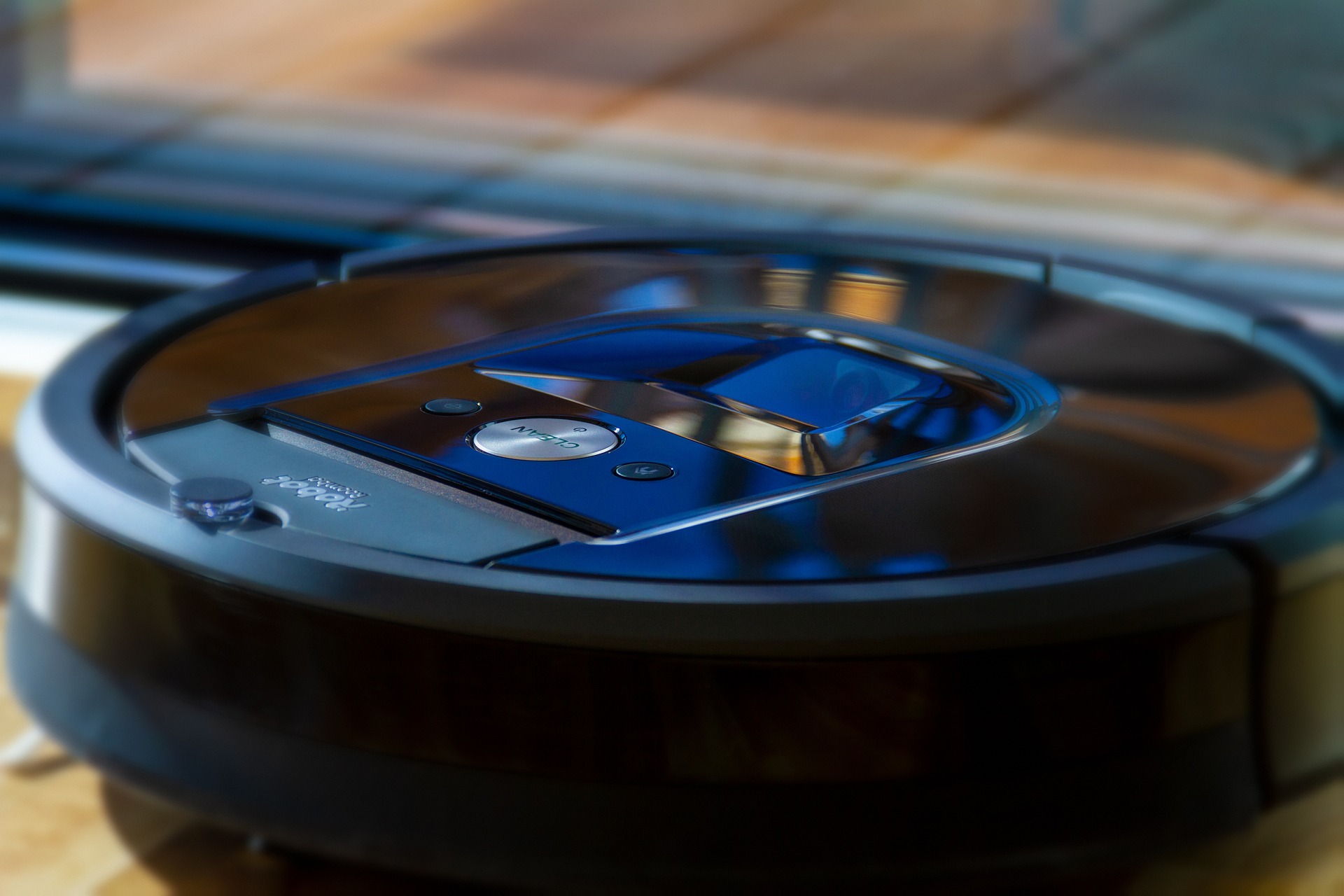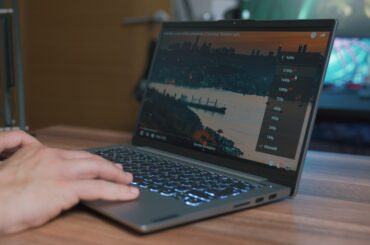The Roomba, a popular robot vacuum brand, has revolutionized how we clean our homes. These intelligent devices are designed to autonomously navigate our living spaces, sucking up dust, dirt, and debris. As the market for robot vacuums continues to grow, many people ask: Is a Roomba worth the investment?
This article will delve into the pros and cons of owning a Roomba to help you make an informed decision. We understand that the purchase of a Roomba represents a significant investment, both in terms of finances and trust in technology. By examining the advantages and disadvantages, we aim to comprehensively understand whether a Roomba is truly worth it for your specific needs.
Whether you’re a busy professional seeking convenience, a pet owner dealing with constant shedding, or simply someone looking to delegate the mundane task of vacuuming, we will explore the factors that can influence your decision. From the convenience and time-saving features to the limitations and ongoing maintenance requirements, we will consider all aspects to give you a balanced perspective.
It’s important to note that the worth of a Roomba may vary depending on individual circumstances. What works well for one person may be less beneficial for another. Therefore, weighing the pros and cons against your unique cleaning needs, lifestyle, and budget is crucial. By the end of this article, we hope to equip you with the knowledge to decide whether a Roomba is worth the investment for you.
So, let’s dive in and explore the advantages and disadvantages of owning a Roomba, helping you determine whether this innovative cleaning companion is truly worth it.
Is a Roomba worth it ?
Understanding the Advantages of Roomba Ownership:
- Convenience and Time-Saving Features:
One of the primary advantages of owning a Roomba is the convenience it brings to your cleaning routine. These robotic vacuums are designed to automate the vacuuming process, saving you time and effort. With a Roomba, you can set up scheduled cleaning sessions, allowing the device to autonomously clean your floors even when you’re not at home. This means you can return to a clean, tidy space without manually operating a vacuum cleaner.
Additionally, Roombas come equipped with features like self-charging capabilities. When the battery runs low during cleaning, the Roomba can automatically dock itself at its charging station, ensuring it’s always ready for the next cleaning session. Furthermore, many Roomba models can be controlled and monitored through smartphone apps, allowing you to manage your vacuuming tasks remotely.
- Effective Cleaning Performance:
Roombas are known for their effective cleaning performance, particularly on hard floors. These robotic vacuums use a combination of suction power and brushes to pick up dirt, dust, and debris from various surfaces. They are designed to navigate around furniture legs and other obstacles, reaching areas that may be difficult to access with a traditional vacuum cleaner.
While Roombas excel at cleaning hard floors, they can also be effective on low-pile carpets and rugs. The device’s brushes and suction power help remove surface-level debris from these carpeted surfaces. However, it’s important to note that the cleaning performance may vary depending on the thickness of the carpet. Due to design limitations, Roombas may need help with deep cleaning on high-pile carpets or rugs.
- Versatility and Adaptability:
Roombas are designed to be versatile and adaptable to different floor types and obstacles. These robotic vacuums utilize advanced sensors and mapping technology to navigate around your home efficiently. They can detect and avoid obstacles such as furniture, stairs, and walls, preventing collisions and damage to both the Roomba and your belongings.
Moreover, Roomba offers specialized models to cater to specific cleaning needs. For example, models specifically designed to tackle pet hair and dander are ideal for households with furry friends. There are also models equipped with advanced filtration systems to capture allergens, which can benefit individuals with allergies or respiratory sensitivities. These specialized options enhance the versatility of Roombas, allowing you to choose a model that aligns with your specific cleaning requirements.
By understanding the advantages of Roomba ownership, including the convenience and time-saving features, effective cleaning performance, and versatility, you can assess whether these benefits align with your cleaning needs and preferences.
Considering the Disadvantages of Roomba Ownership:
- Limitations on Thick Carpets and Rugs:
While Roombas have impressive cleaning capabilities, they do have limitations when it comes to deep cleaning on high-pile carpets or rugs. Due to their design and smaller size, Roombas may struggle to effectively penetrate the dense fibers of thick carpets. The suction power and brush action may be less effective in removing debris embedded deep within the carpet. Suppose you have predominantly thick carpets or rugs in your home. In that case, it’s important to consider this limitation and evaluate whether a Roomba will meet your cleaning expectations for these specific surfaces.
- Initial Cost and Maintenance:
Another factor to consider when contemplating Roomba ownership is the initial cost and ongoing maintenance requirements. Roombas are generally considered a higher-end option in the vacuum cleaner market, which means they can come with a higher price tag than traditional vacuum cleaners. The cost can vary based on the specific model and features you choose.
In addition to the initial cost, it’s important to consider the maintenance requirements of a Roomba. Over time, the brushes and filters of the device may wear out and need to be replaced. These replacement parts come with associated costs, and the replacement frequency will depend on factors such as the size of your home, the amount of dirt and debris, and the frequency of use. Considering the ongoing maintenance costs is essential to ensure that a Roomba remains within your budget.
- Individual Home Considerations:
The layout and characteristics of your home can also influence the efficiency and effectiveness of a Roomba. Factors such as open floor plans, cluttered spaces, or complex room layouts may pose challenges for a Roomba to navigate and clean efficiently. If your home has a lot of furniture with narrow gaps or low-clearance areas, it may limit the Roomba’s access to certain parts of the floor.
Moreover, the presence of pets or allergens can affect the performance of a Roomba. While Roombas have specialized models for pet hair and allergen capture, they may still struggle with excessive pet hair or large amounts of allergens. Evaluating your specific home considerations and cleaning needs is important to determine if a Roomba will effectively address them.
By considering the limitations on thick carpets and rugs, the initial cost and maintenance requirements, and individual home considerations, you can make a more informed decision about whether a Roomba is the right choice for you and your home. Understanding these disadvantages will help you assess whether they outweigh the advantages and align with your cleaning requirements and preferences.
Personal Factors to Consider:
- Budget and Value for Money:
When contemplating the purchase of a Roomba, it’s crucial to assess your budget and determine if the features and convenience it offers justify the cost. Roombas are generally considered a higher-end option in the market, and the price can vary based on the specific model and features you choose. Consider your financial situation and evaluate whether the investment in a Roomba aligns with your priorities and long-term value for money.
- Lifestyle and Time Constraints:
Consider your lifestyle and the time constraints you face in your daily routine. Roombas can be particularly beneficial for individuals with busy schedules or limited mobility. These robotic vacuums can perform regular cleaning tasks autonomously, allowing you to focus on other activities or responsibilities. Suppose you need help finding time for a routine cleaning or have physical limitations that make traditional vacuuming challenging. In that case, a Roomba can provide a convenient solution and save you valuable time and effort.
- Personal Cleaning Preferences:
It’s important to acknowledge that personal cleaning preferences can vary among individuals. While a Roomba offers convenience and automated cleaning, some individuals may prefer the traditional vacuuming methods they are accustomed to. They may have specific cleaning habits or preferences that may not align with a Roomba’s operation. If you derive satisfaction from manually cleaning your home or have specific cleaning techniques you prefer, there may be better choices than a Roomba for you.
Additionally, consider any specific cleaning needs or concerns you may have. If you require precise spot cleaning, specialized stain treatment, or other specific cleaning tasks that go beyond the capabilities of a Roomba, opt for traditional vacuuming methods or consider a combination of both approaches.
By considering personal factors such as budget and value for money, lifestyle and time constraints, and personal cleaning preferences, you can make a decision that aligns with your unique circumstances and cleaning habits. Understanding these factors will help you assess whether a Roomba fits well into your lifestyle and meets your expectations for a clean and tidy home.
Conclusion:
In conclusion, whether a Roomba is worth depends on various factors that should be carefully considered. Let’s summarize the key points discussed:
The advantages of Roomba ownership include its convenience and time-saving features through automated cleaning, scheduled cleaning sessions, self-charging capabilities, and app-controlled operation. Roombas also perform effectively on hard floors and low-pile carpets, with specialized models available for specific cleaning needs. Additionally, Roombas are versatile and adaptable to different floor types and can navigate around obstacles in your home.
On the other hand, there are disadvantages to consider. Roombas may have limitations on deep cleaning high-pile carpets and rugs. The initial cost of purchasing a Roomba and ongoing maintenance requirements, such as replacing brushes and filters, should also be considered. Individual home considerations, including layout, furniture, and the presence of pets or allergens, can impact a Roomba’s efficiency.
It’s important to remember that a Roomba’s worth is subjective and depends on your specific needs, budget, and cleaning preferences. Take the time to evaluate your circumstances and consider whether the features and convenience of a Roomba align with your priorities and value for money. Personal factors such as your lifestyle, time constraints, and personal cleaning preferences should guide your decision.
To make an informed choice, we encourage you to read customer reviews, compare different Roomba models, and consult expert opinions. This will provide you with valuable insights and help you determine which Roomba model if any, best suits your needs.
Ultimately, the decision of whether a Roomba is worth it rests with you. By carefully assessing your requirements, considering the pros and cons, and exploring the experiences of others, you can make a decision that brings convenience, efficiency, and cleanliness to your home.







